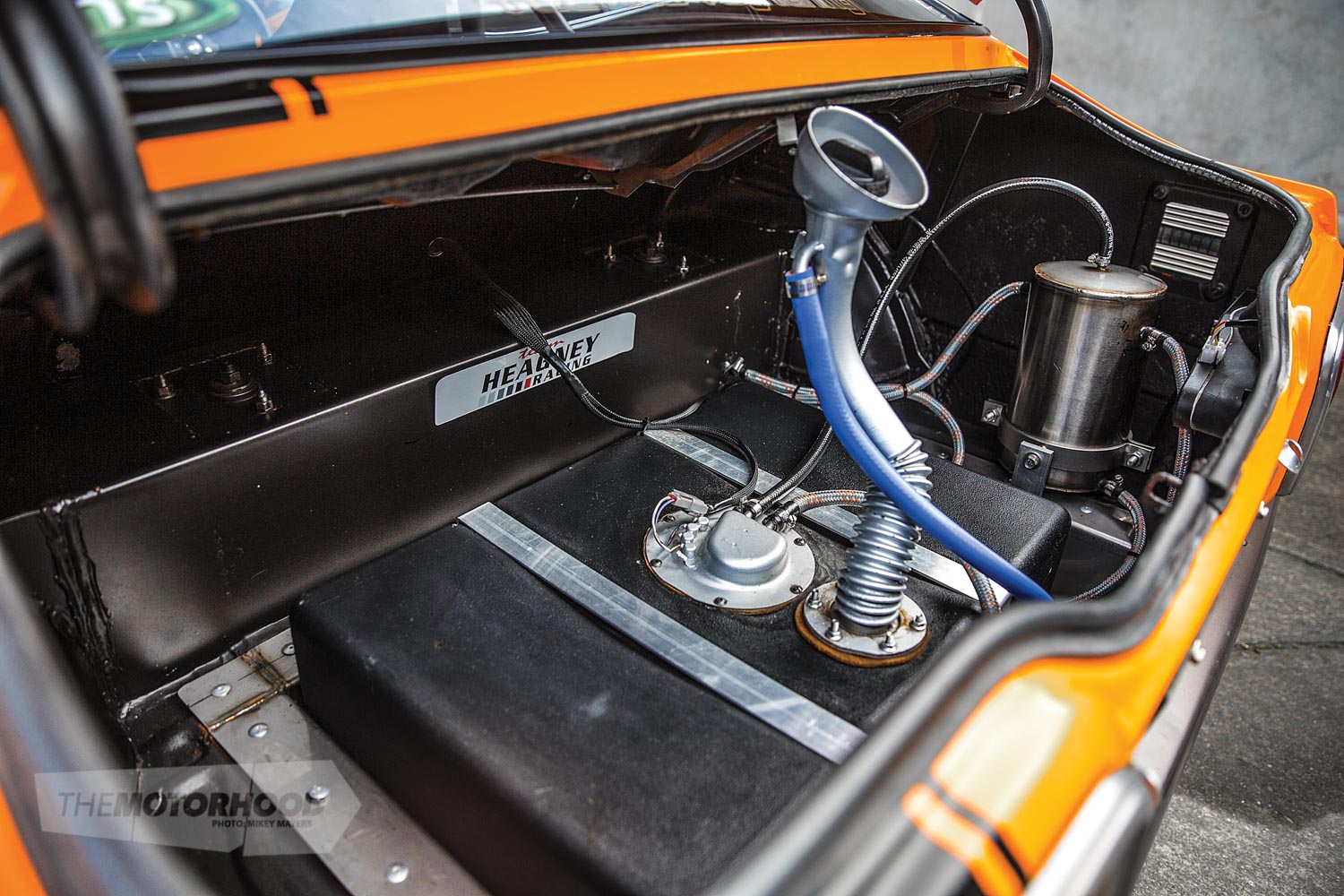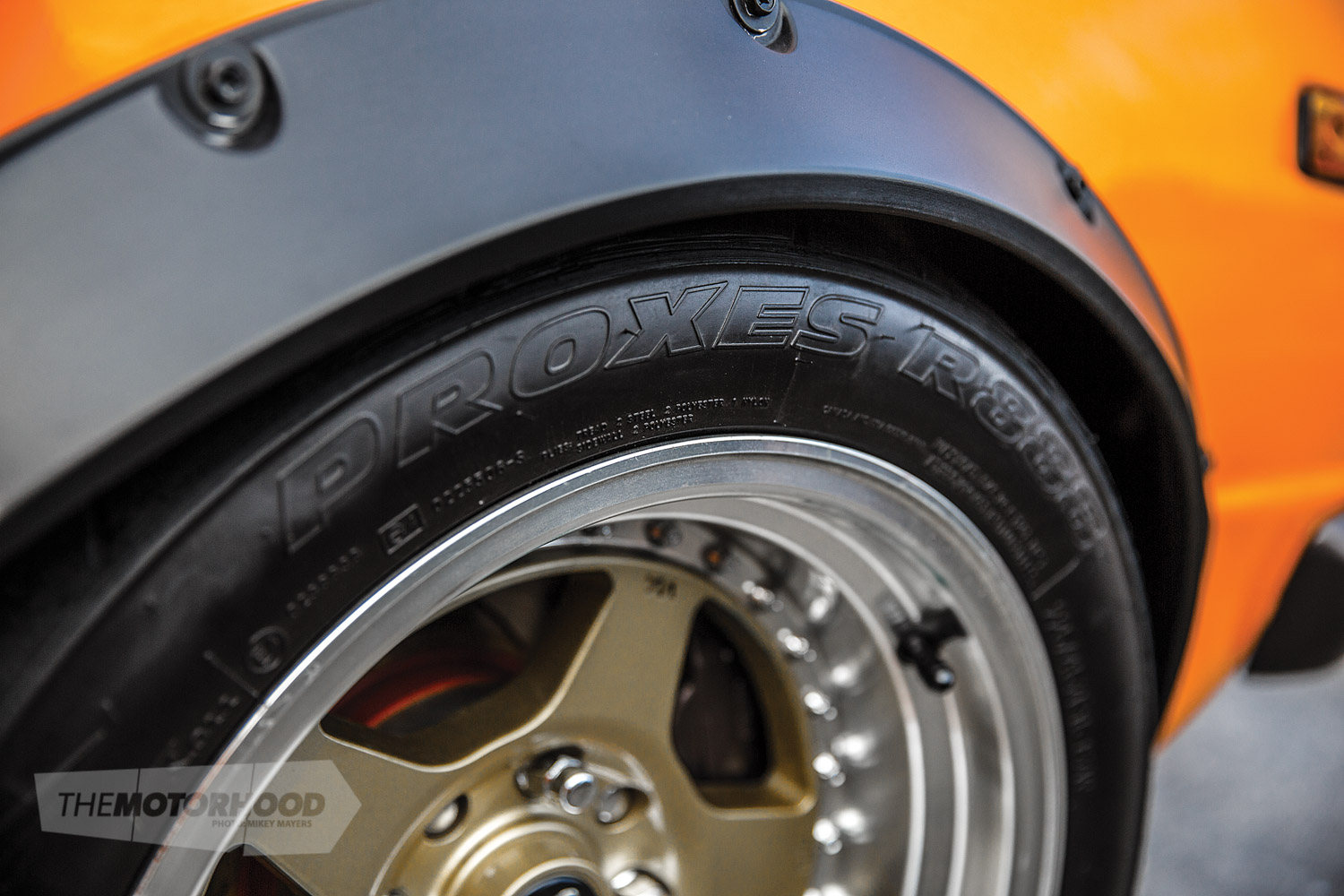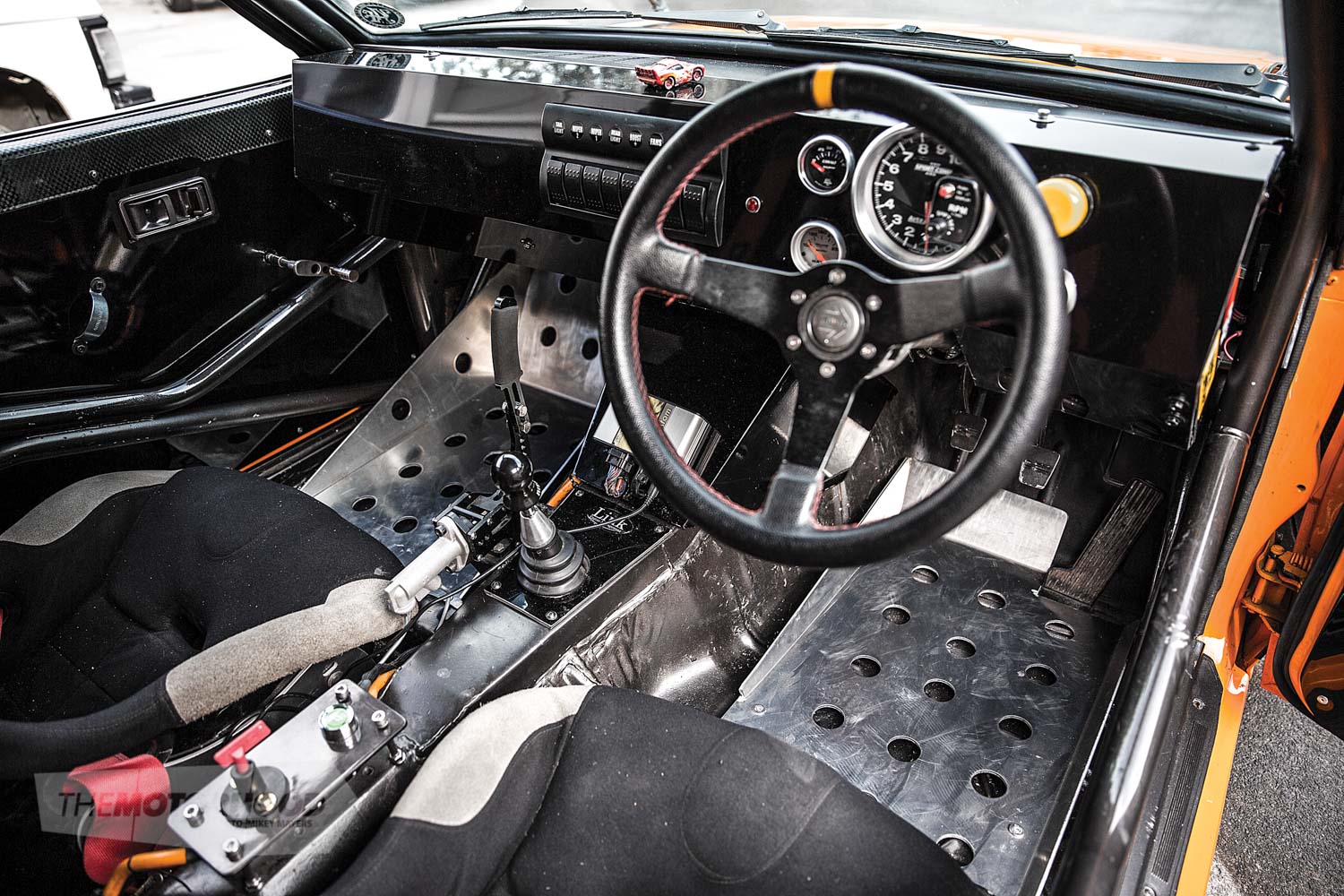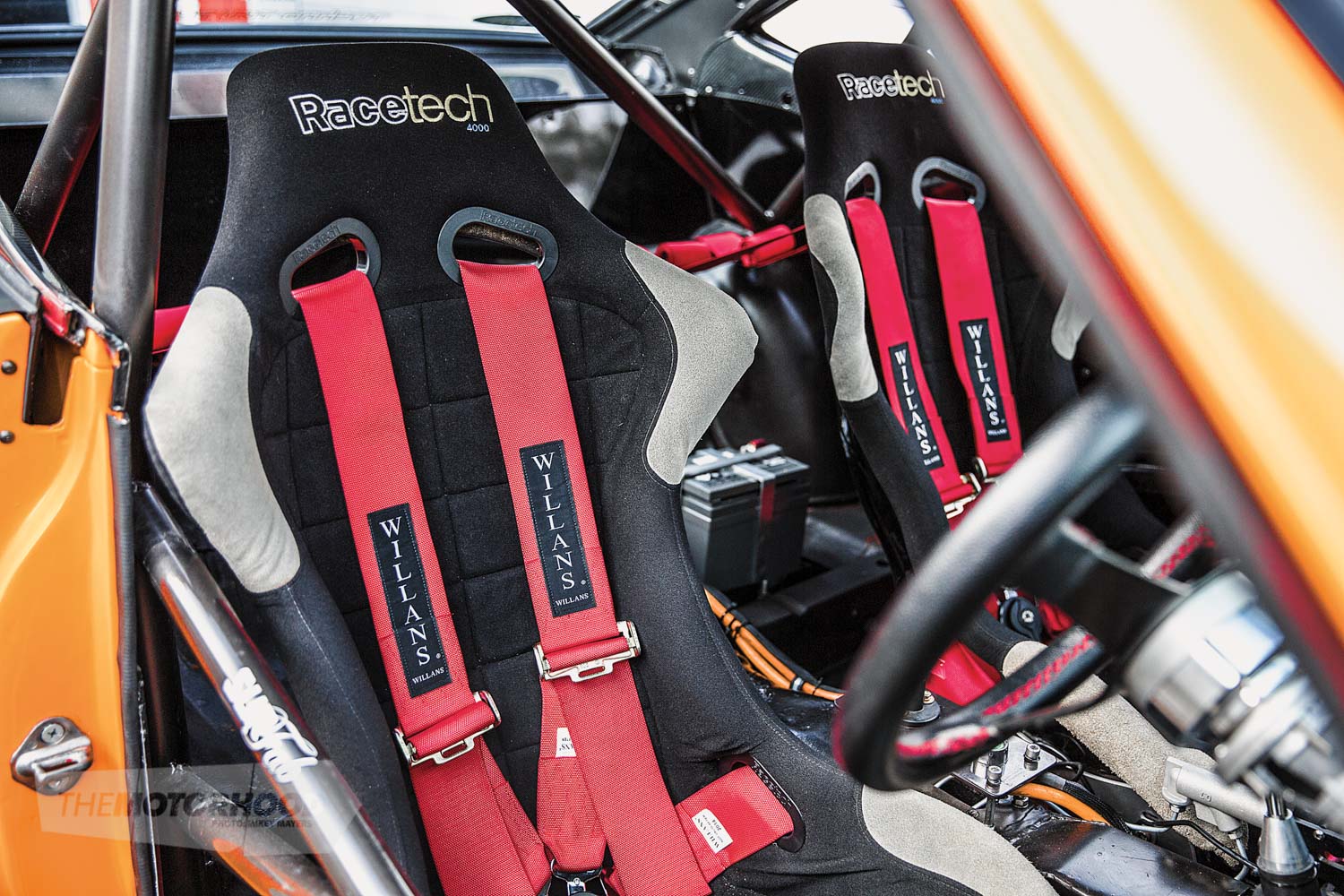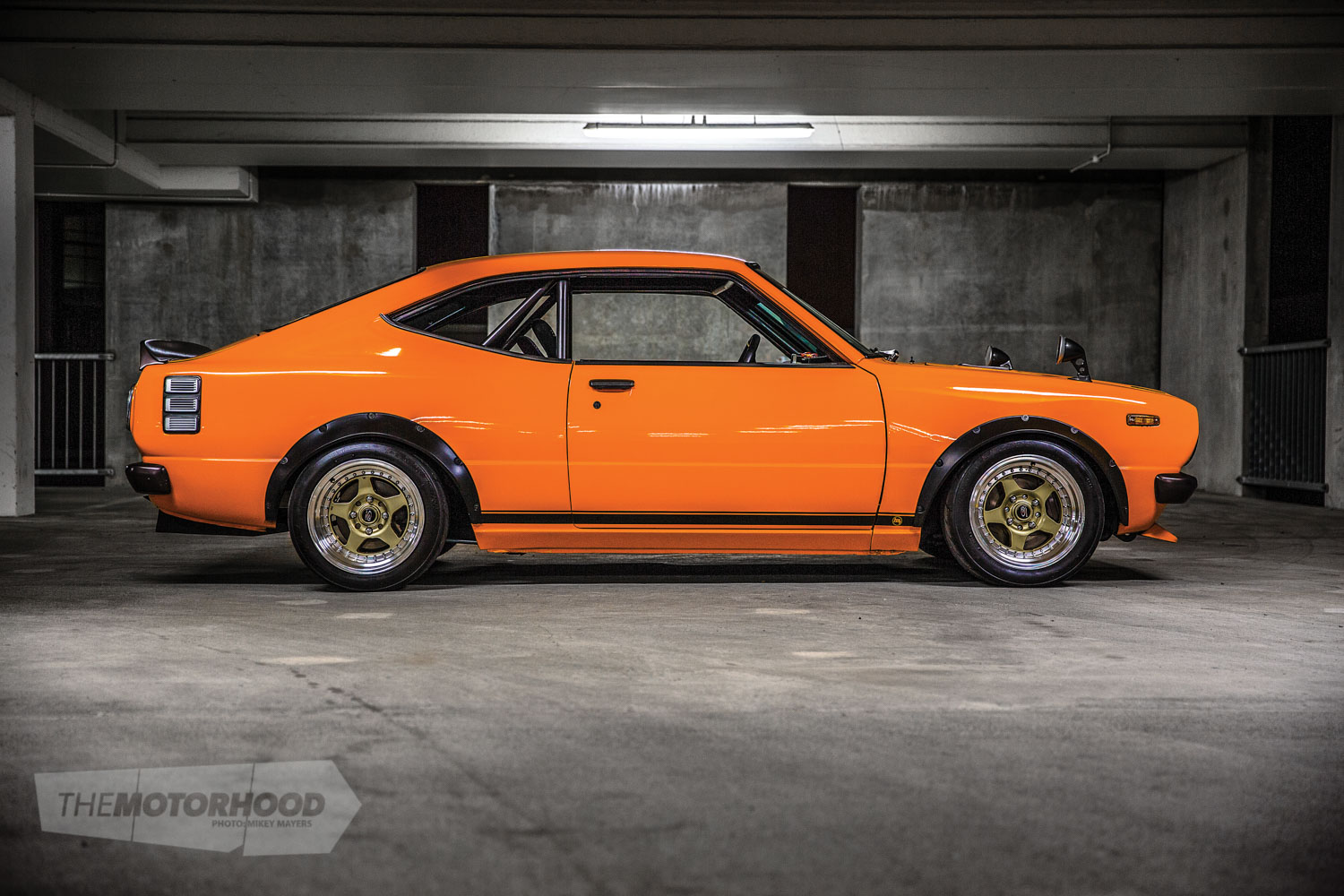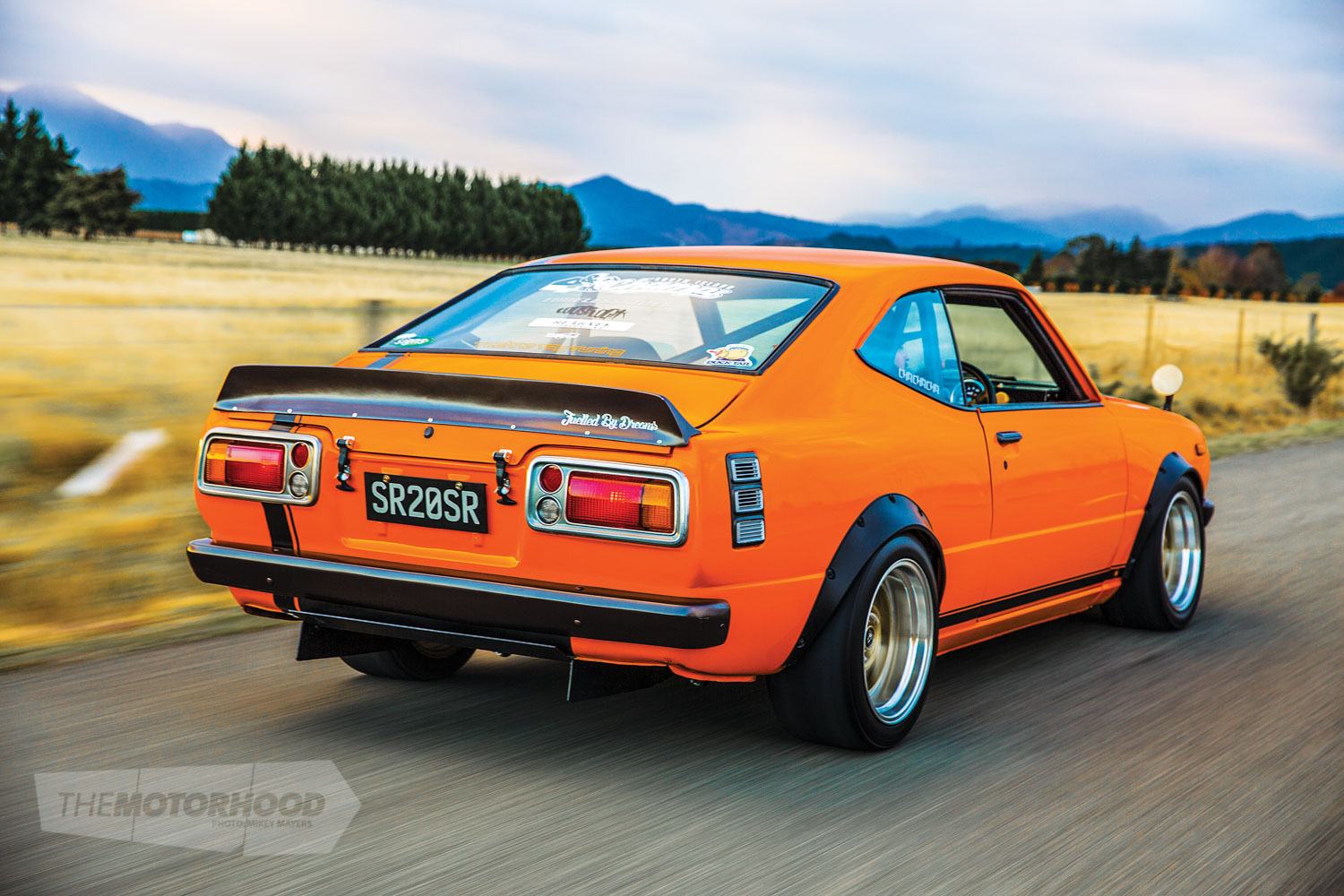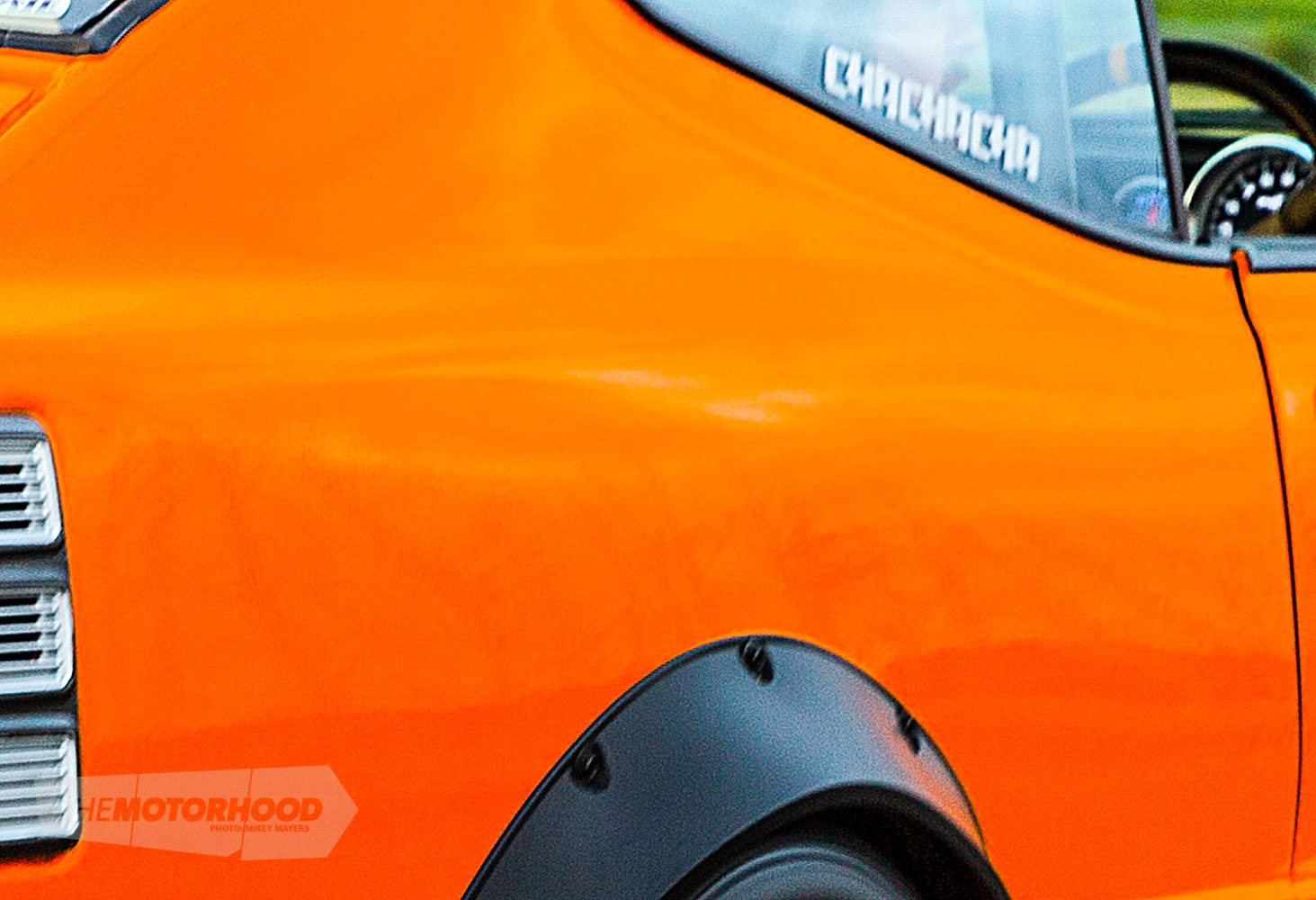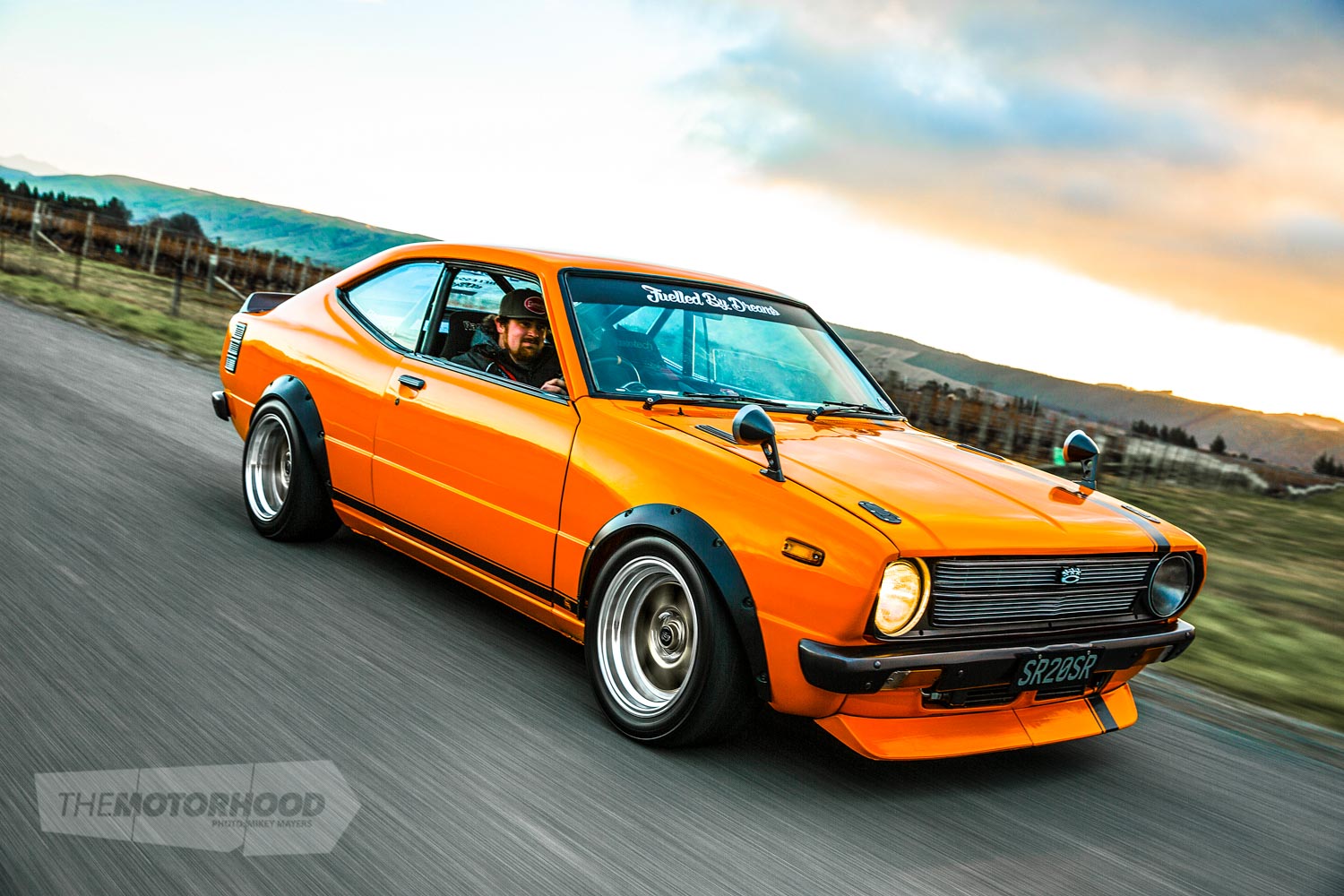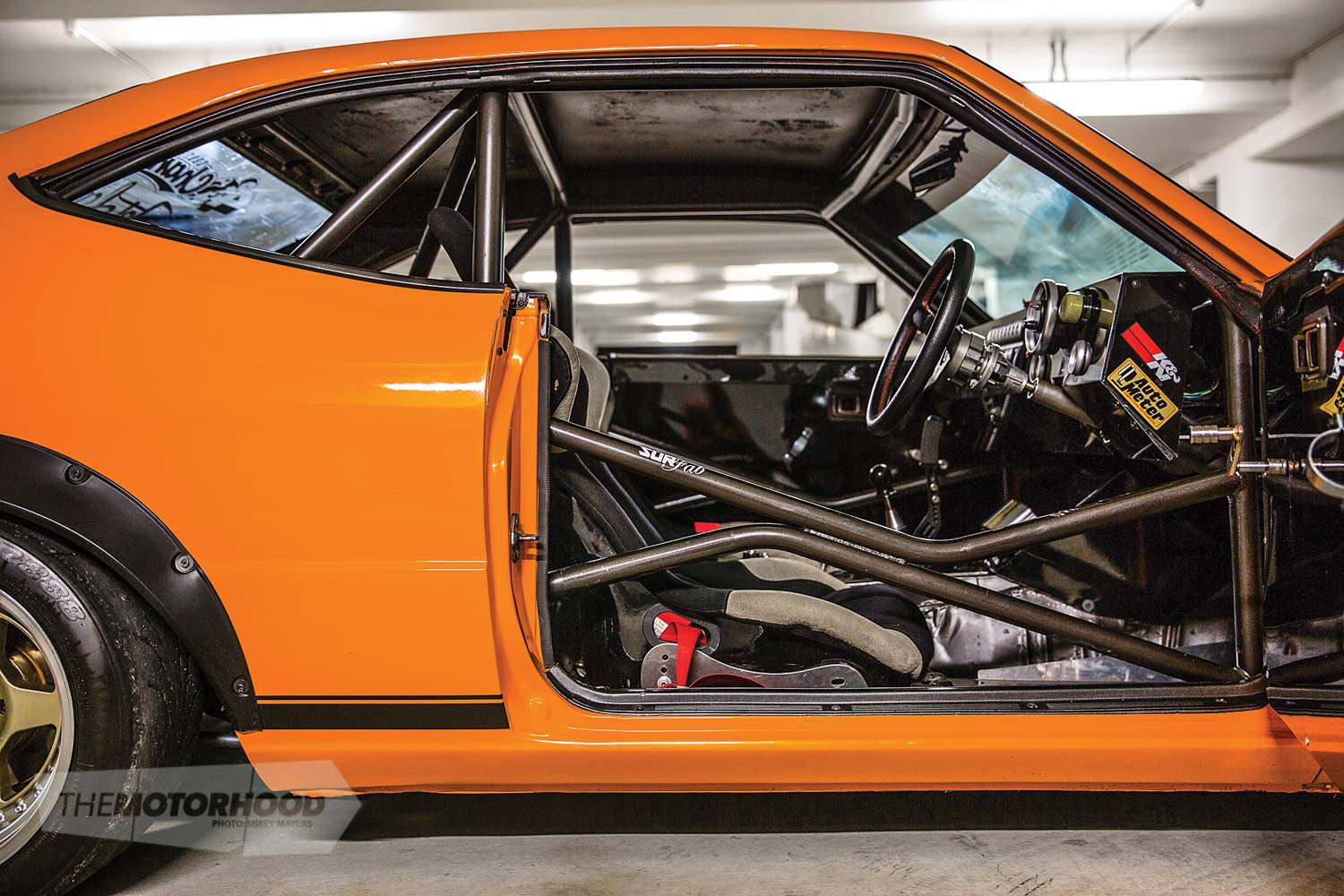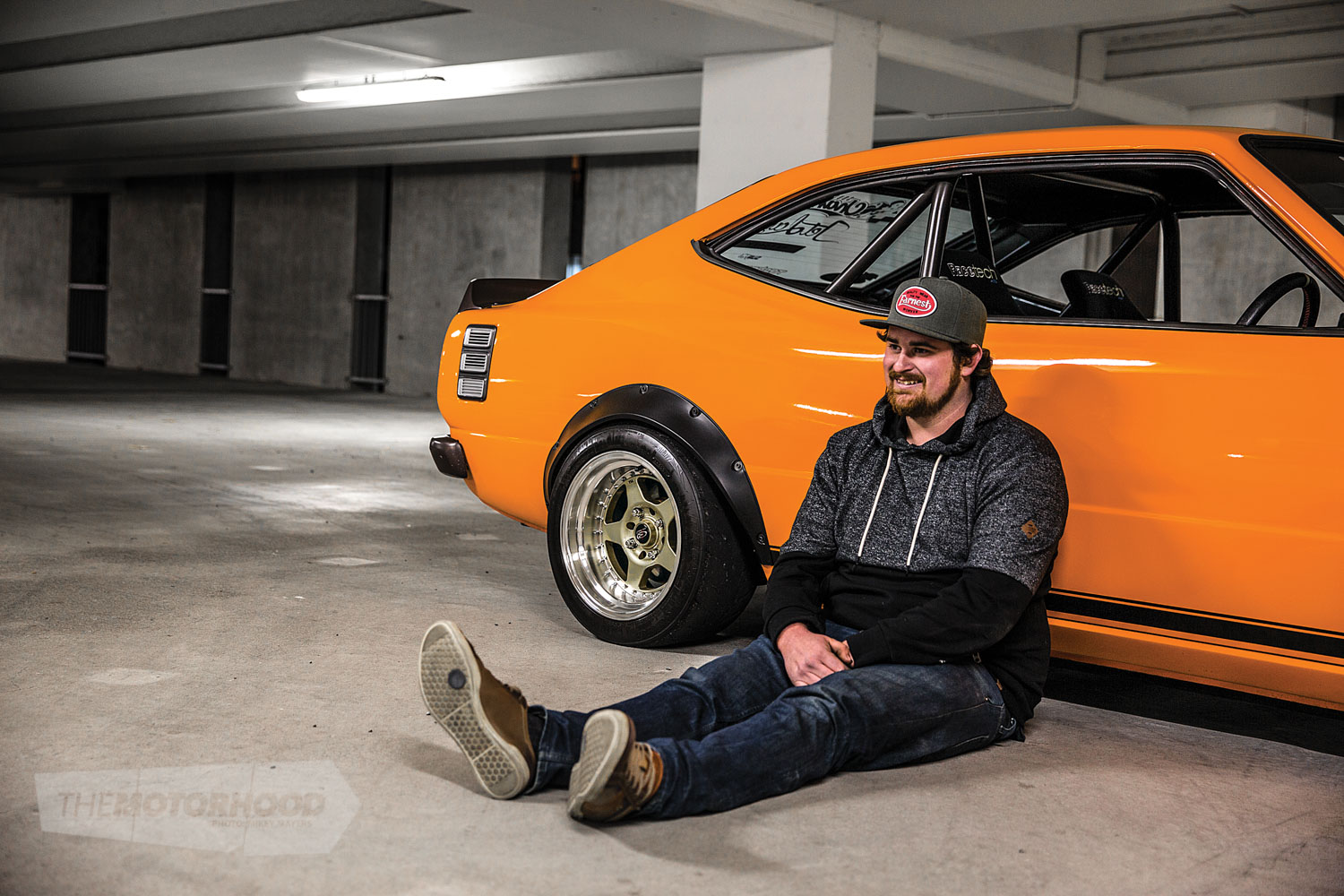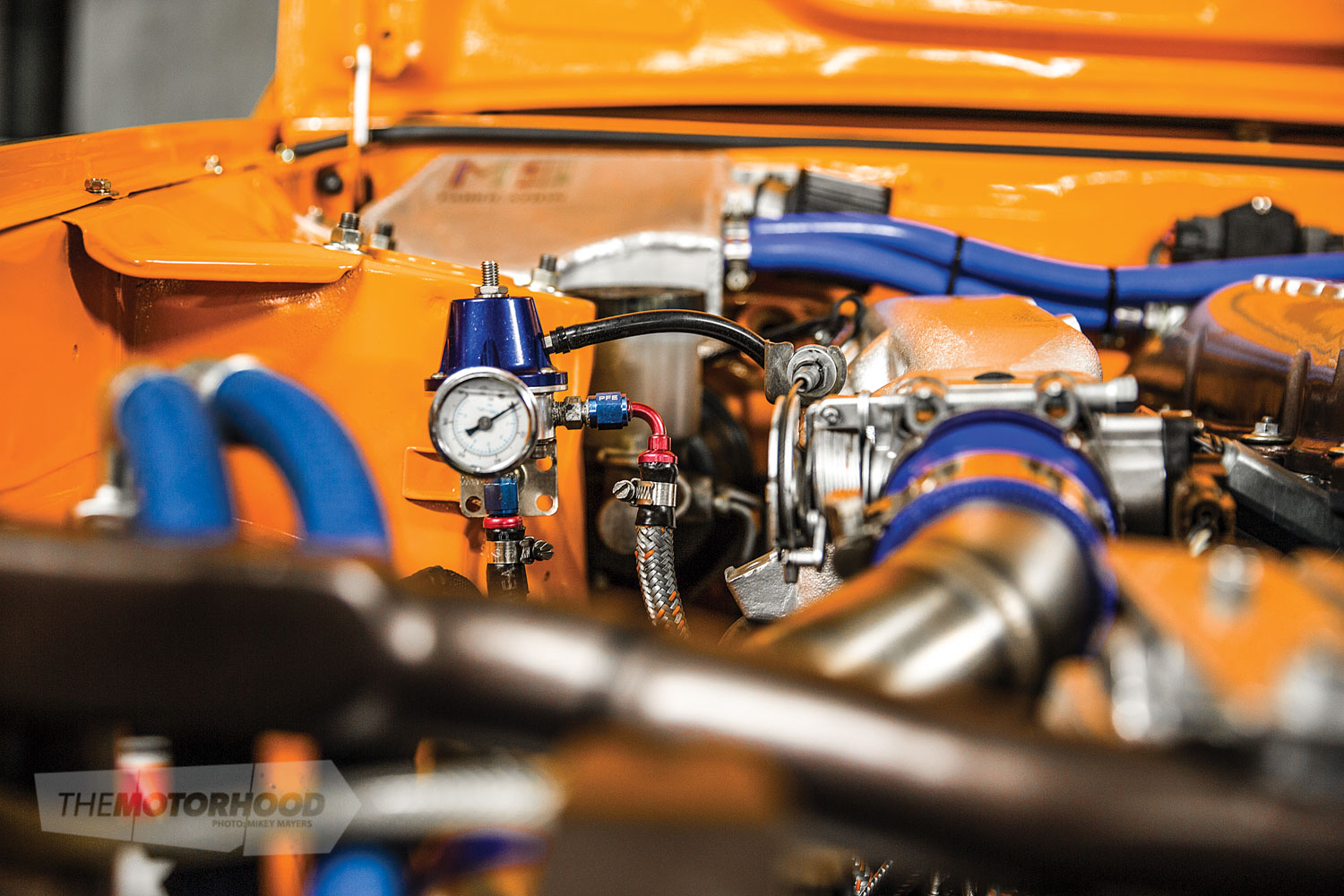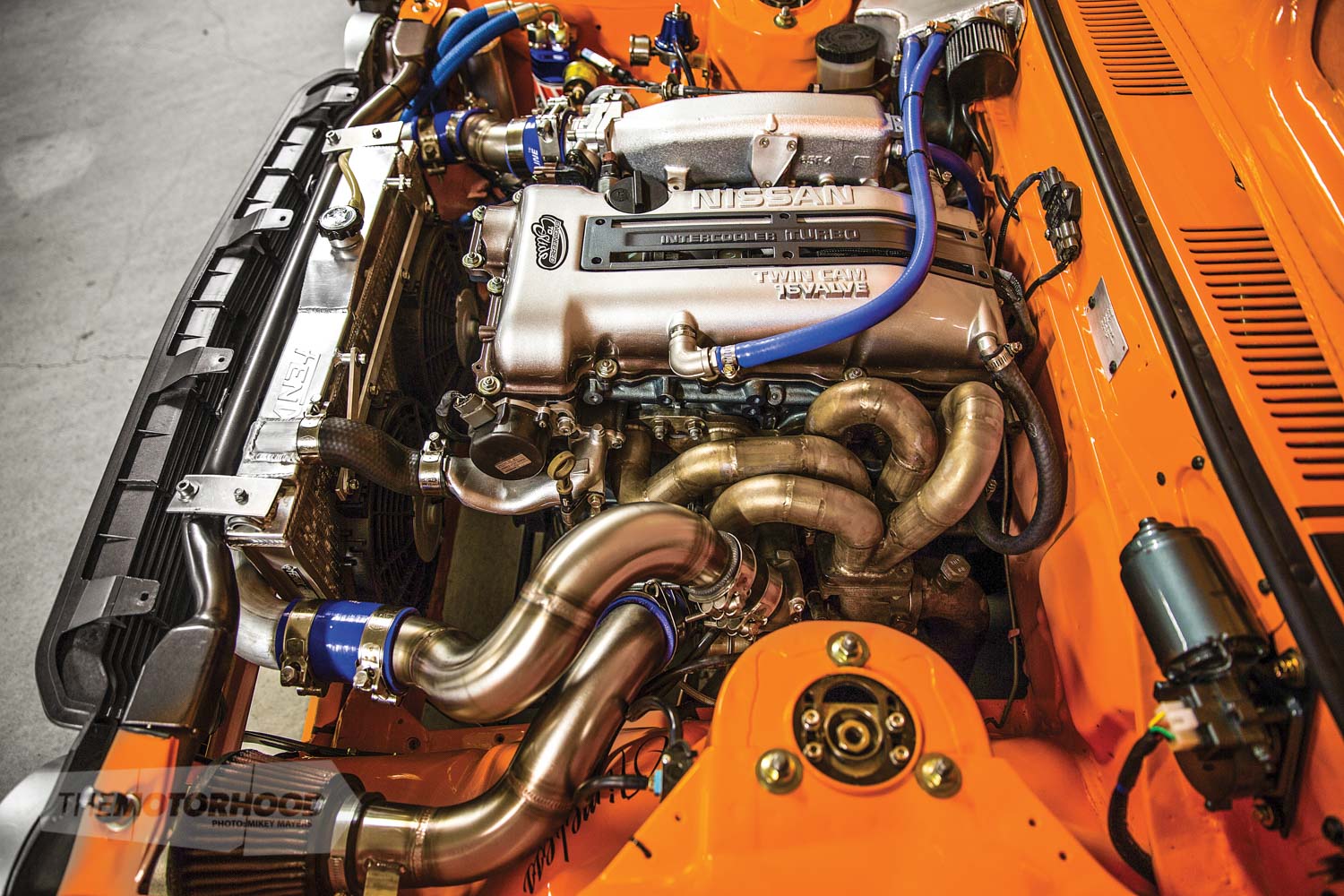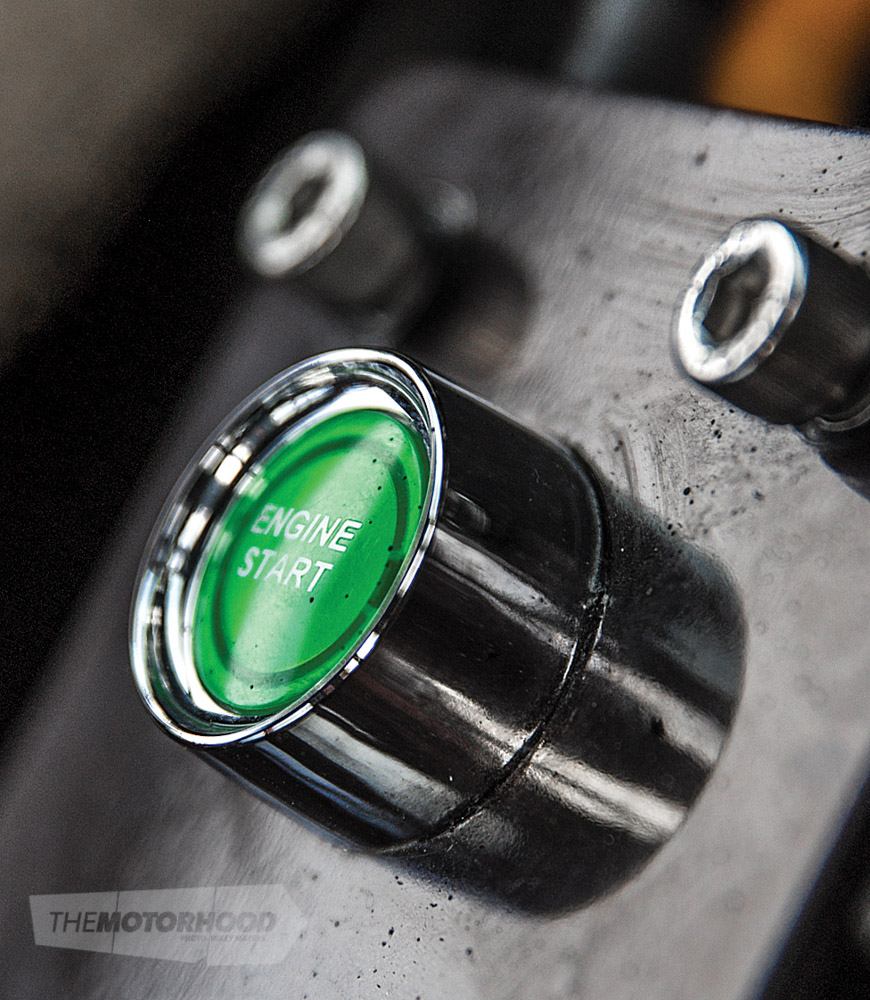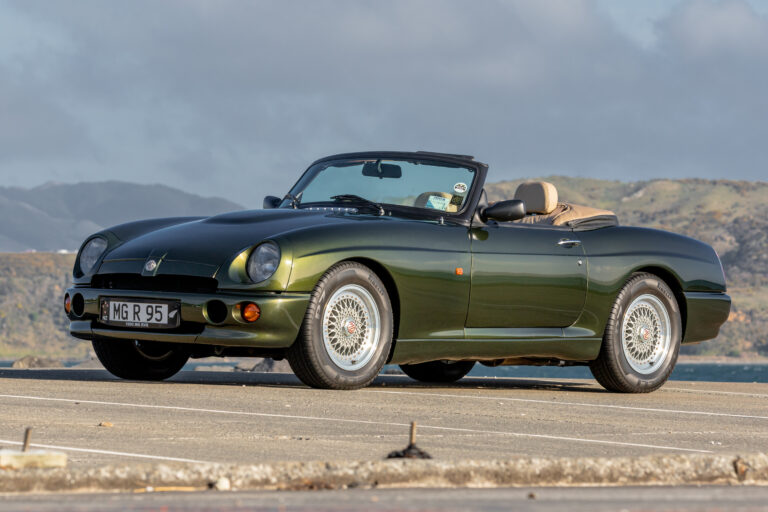data-animation-override>
“Alex MacAskill found the perfect cure for his hangover is a good dose of Vitamin C — vitamin circuit racing, to be exact”
As a nation, we Kiwis love nothing more than a good ol’ party. In fact, our life milestones are usually marked by a giant shindig with a big feed, and, more often than not, plenty of lubrication with an alcoholic percentage. But, as we all know, when you go big, the hangover the next day can be brutal, ranging anywhere from a throbbing headache to an empty bank account; a police record; or, in Alex MacAskill’s case, remembering you swapped your freshly completed project for something else. While we’re not too sure what state the hangover was in that day, the beers had clearly been flowing at a 21st birthday the night before, as Alex told us: “I had just finished giving my KE70 a new paint job and throwing on some wheels. A mate had been slow in building up this KE35, which I really wanted. It was still at the backyard panel beater, so I suggested the swap, and, the next day, he rang asking if I was still keen. I went and looked at the KE. It looked straight enough, so the deal was done that day.”
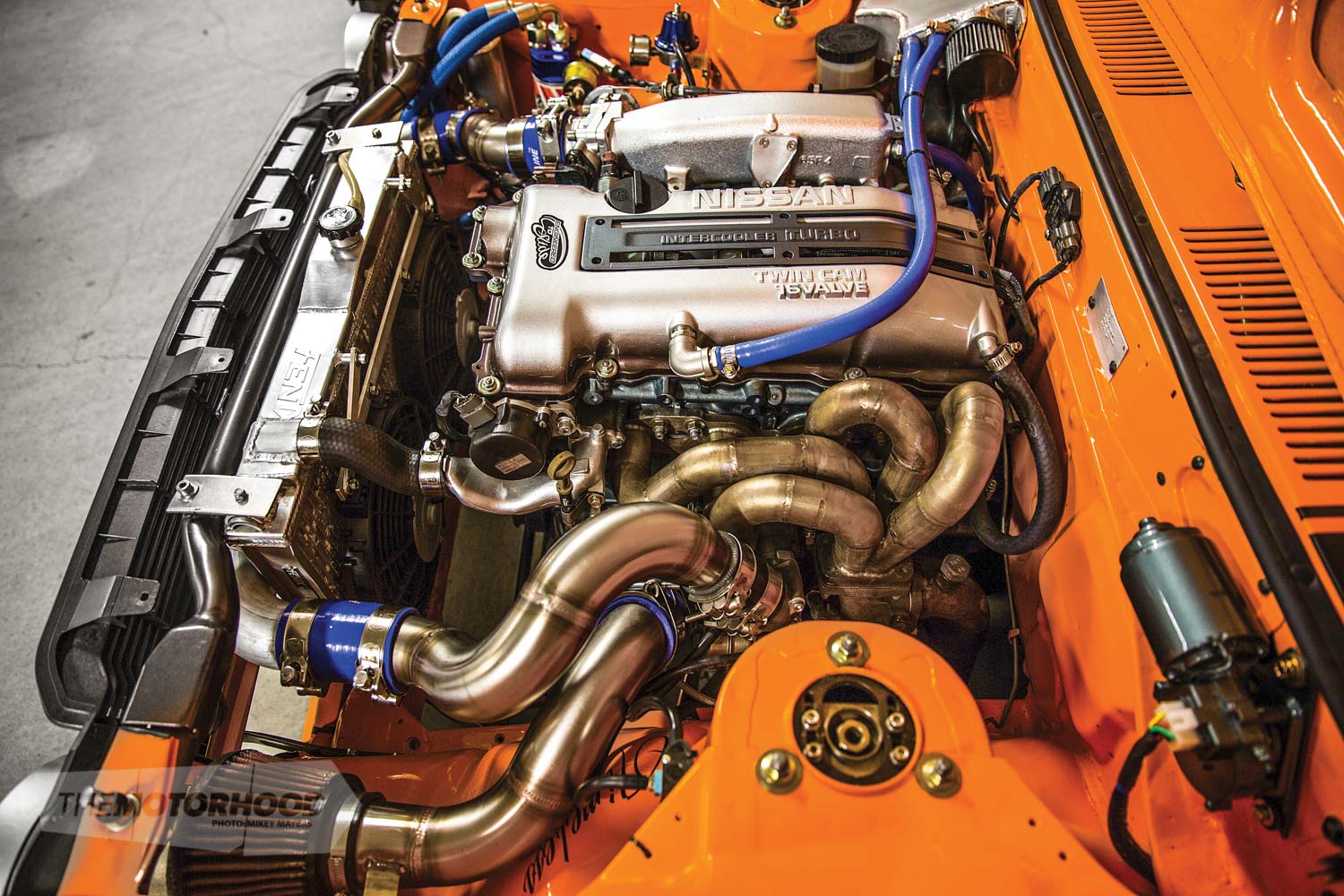
Alex was halfway through an automotive refinishing apprenticeship at the time, so the fact that the coupe was in primer didn’t faze him until a closer inspection revealed the true extent of the workload he had stacked in front of him. The first thing he did when he got the shell home was to flip it on its side and drill a hole in the sill to inspect the bog work, and it was not good news. Lucky for Alex, he was in the correct trade to tackle such a project, and, rather than give up right then and there, he accepted the challenge: the coupe would serve as a great learning curve. “I had all the tools available to me, it was just a matter of learning to use them,” Alex explained. “I took the shell back to bare metal and spent the next eight months fixing the body and the rust. I spent two months alone with the dent puller.” There was not a straight panel on the car, apart from the boot lid. The backyarder who had been working on the project for the last owner was a master in bog work — Alex ended up pulling off around 30kg of the stuff. The bonnet had around 15 layers: “It was supposed to have a high-rise bonnet with the swage down the middle, but, when I got it, I noticed there was no swage line. He must not have been able to get it straight, so he just hammered it flat and then covered the bonnet in bog to get it straight. It was so heavy.”
As anyone who has rebuilt an old car will attest, finding decent replacement panels can often be a taxing process. The struggle was real for Alex, who was able to find doors and guards, but the bonnet proved a nightmare, with not one but two replacements showing up that were worse than the original. The third and final solution was a Mike Shaw Fibreglass item, which was fine with Alex, as a little weight saving would not go amiss given his goal of making the most of the South Island’s motor sport scene and his plans to run the car in the local endurance series, hill climbs, and street sprints. But he also wanted to keep it road legal, although, as the project progressed, the modification list got longer and the hoops he’d need to jump through to keep it on the road got higher and smaller. “When I started looking into the Toyota Starlet steering-rack conversion,” he said, “it was looking like I would have to take the car to the North Island just to get it certified. It was becoming too much of a mission, when I would barely be using it on the road anyway.”
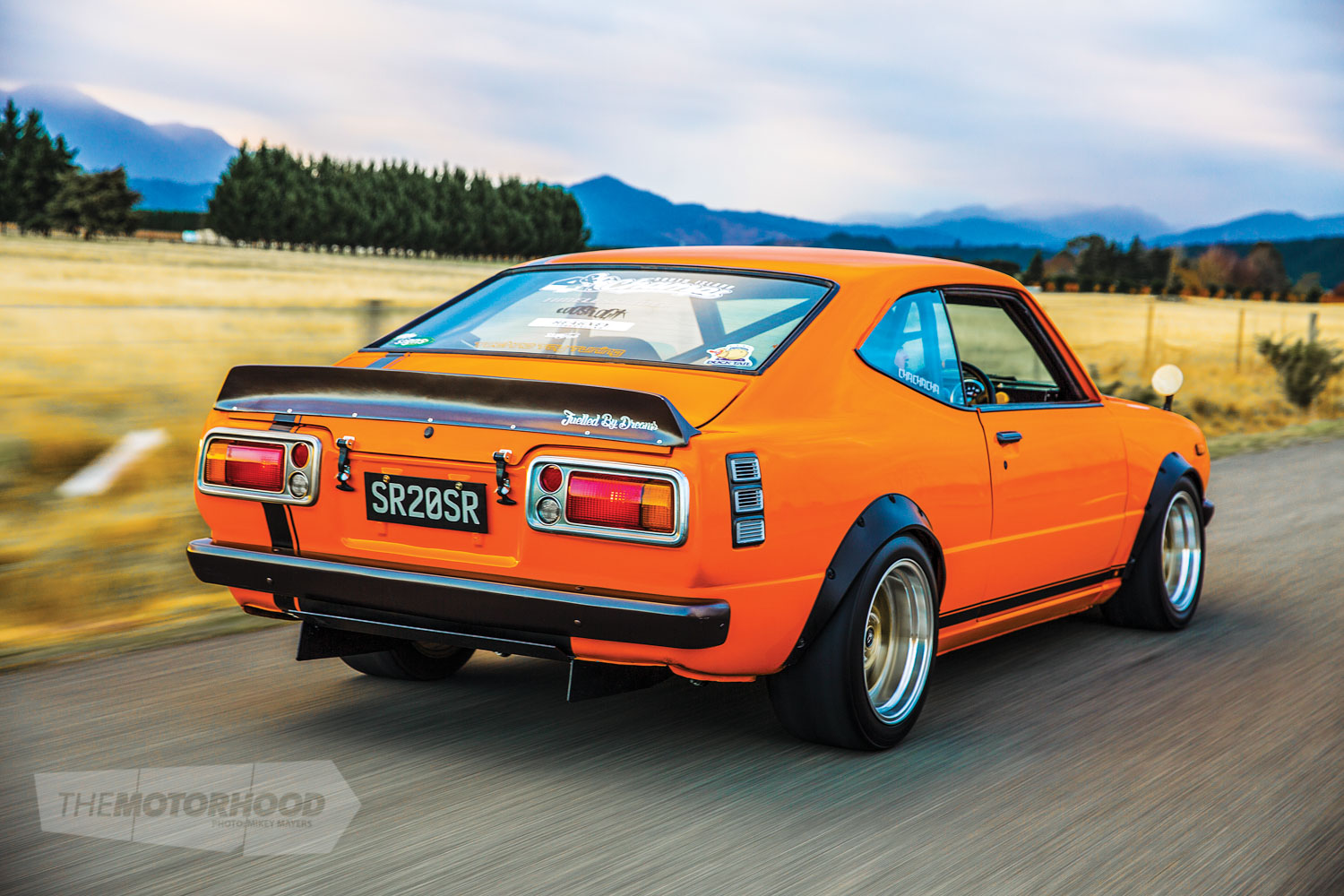
When he planned the suspension, Alex was clear that he didn’t want to detract from the old-school feel and handling characteristics of the Corolla by heading down the route of an independent-rear-suspension (IRS) subframe swap. With the help of a good mate, Ryan from Team Heagney Racing, a three-link design was put together to mount and control the Toyota Hilux diff. Said Alex, “Ryan and his family have been racing for years, so he has a wealth of knowledge. He was also talking to a guy in Christchurch about the design, who helped with a lot of info. Things like off-centring the third link to help counteract the torque steer.” Ryan was the man charged with the front end design, too, which is a mix of new and old. The subframe, a KE35 item, now has a custom plate to house that Toyota Starlet steering rack, used for its quicker ratio. Originally, a set of T3 knuckles was planned, but a last-minute rush to get the GT-R four-pot brakes fitted ahead of the V 4&Rotary South Island Champs saw Alex exploring other options. Nissan S13 uprights and coilovers got the nod, as the brakes bolt directly on, as do the slightly modified Cressida lower arms and ball joints. Alex had hesitations about using S13 uprights at first, thanks to reading some bad reviews online about such a set-up in older Toyotas. But, as is the case with lots of stuff, not everything you read online should be treated as gospel. “We spent lots of time getting everything right, like the Ackerman and caster, etc. Ryan set up the car with the strings, and, although I’ve yet to drive it on the track, the car felt good and didn’t try to kill me during my test drives, so it just goes to show how important it is to have someone who knows what they are doing with the alignment,” Alex said.
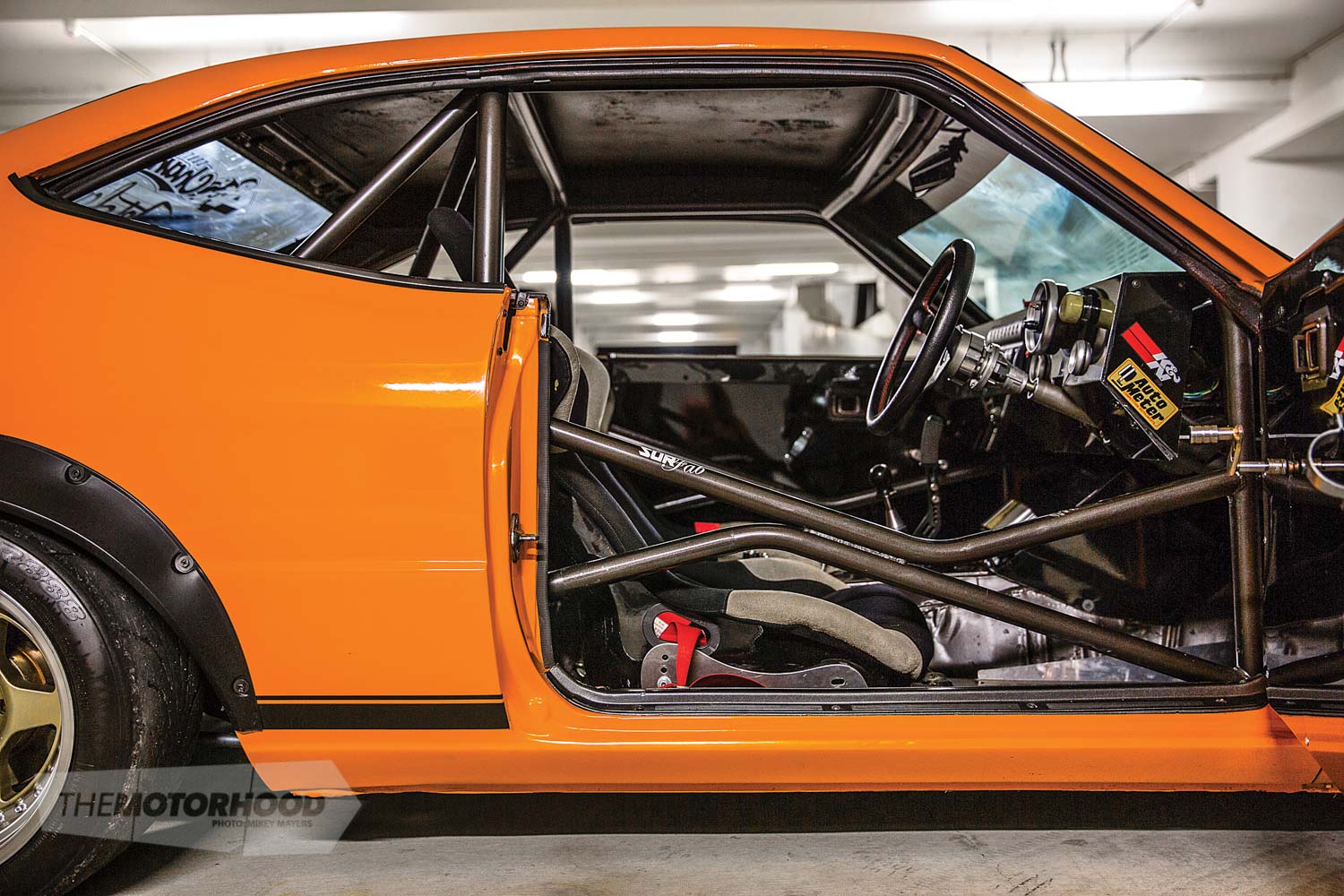
It’s obviously something that the boys will continue to adjust and tweak once they hit the track later this year. But, with plenty of adjustability built into the package, with rose-jointed arms throughout, there is plenty of scope for improvements. This is why you will not find some 500kW monster under the bonnet. Alex wants to learn how to drive the car and set it up properly before adding in a ton of power. At present, things have been kept simple — but not as simple as was originally planned. Said Alex, “A mate pulled out an SR20DE from his S14 to put in a DET, so I purchased the DE and five-speed off him really cheap. Originally, I was going to throw it in there and go for a skid — I even had an old Link G1 ready to throw in — but then the project snowballed. At one stage, I had four SRs sitting there, including two DETs.” But, after pulling them down and seeing that they needed new liners, the DE was brought into play once again and given a complete freshen up, and the old G1 was ditched in favour of modern G4 hardware. Essentially, what he has is a Spec R S15 engine combo with a little more compression. It’s a really basic set-up that Alex hopes will make between 180 and 225kW (241 and 302hp) once tuned, although it’s likely that a track tune will be all it sees for some time. “The set-up is so basic that it’s really just a matter of tweaking the mixtures,” he told us. “We have everything we need, like the Innovate wideband to tune it at the track. I will get it on the dyno at some point in the next six months.”
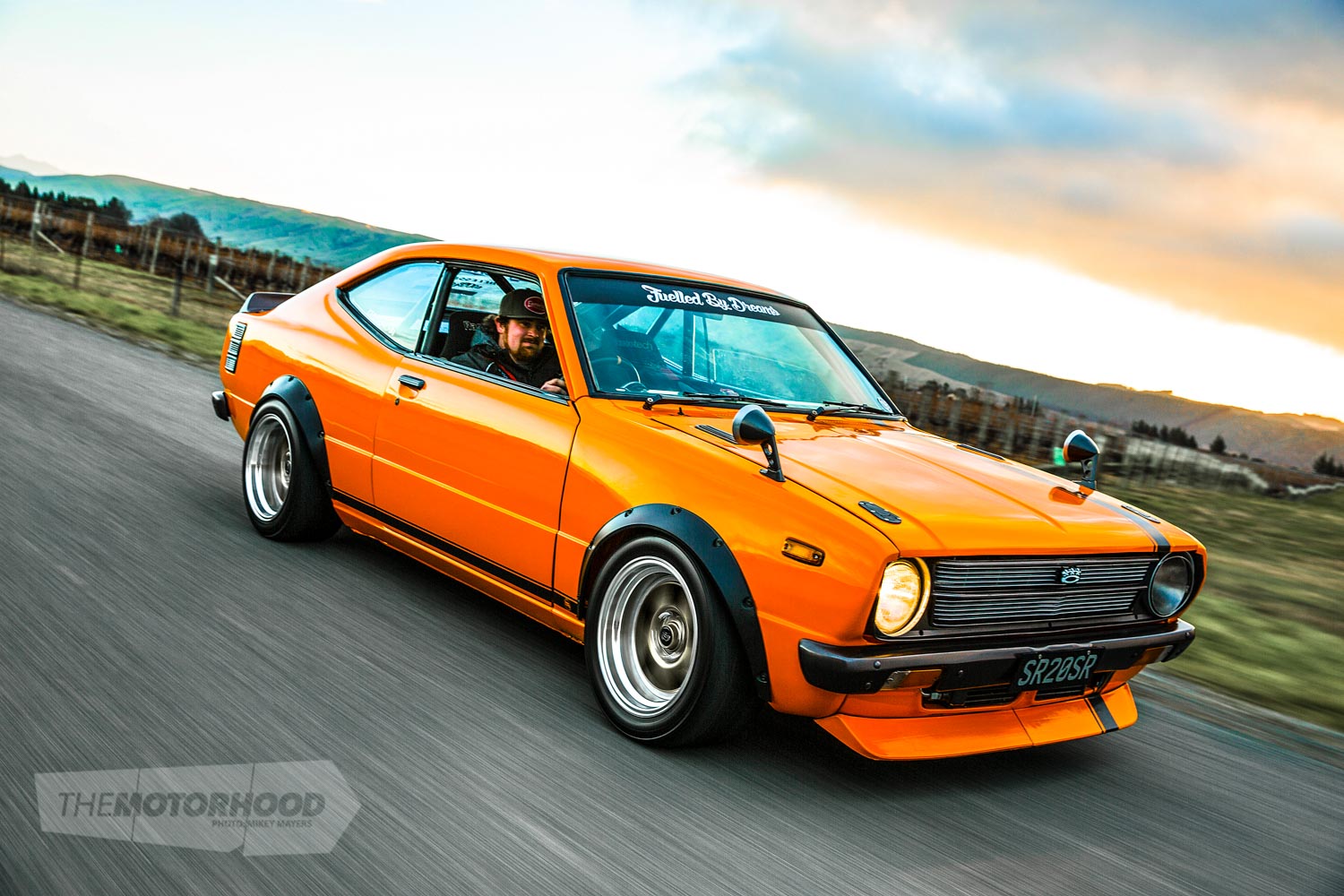
Being a car painter by trade, the one area that Alex was always going to make shine was the paintwork and detail. It’s an occupational hazard, you might say, and even Alex himself admitted to maybe going a little overboard in this department: “I get lots of shit for the car having pretty much everything painted — including the engine block and gearbox — in three-layer pearl.” It has certainly come a very long way from the primed shell it was four years ago and is sure to pull lots of attention any time it’s up on stands or when the bonnet is popped at the track later this year. But how long it will look this way is uncertain; racing is hard on any car, and, once that bug bites, the pursuit of speed almost becomes tunnel vision. It will be a learning curve, but, with a talented bunch of mates in his corner, there is no doubt that they will get the car working right, not only for the endurance stuff but also for some of the wild hill climbs the South Island has to offer grassroots drivers — like the infamous 10-kilometre-long Denniston Hillclimb in Westport, with its 130-odd corners. It’s this event that Alex is really excited to drive after his taste — from the passenger seat — of the adrenaline rush it brings.
From hangover to hill climbing, what Alex has created while mostly on an apprenticeship budget is astonishing. It’s probably the best hangover to happen in history, one that certainly won’t be repeated any time soon with the KE35 — well, at least, we hope not.
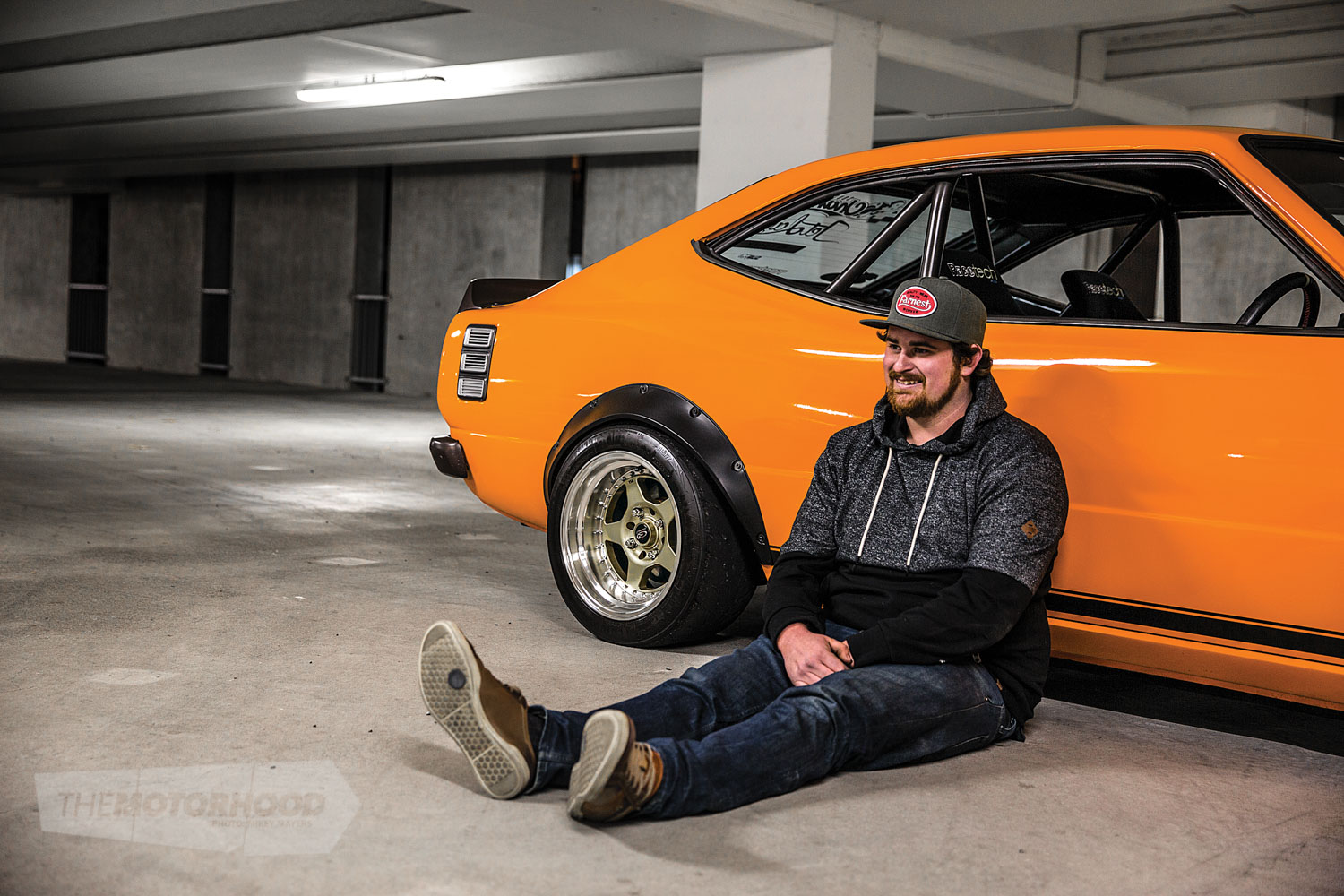
DRIVER PROFILE
Driver/owner: Alex MacGaskill
Age: 25
Location: Blenheim
Occupation: Automotive refinisher
Build time: 4.5 years
Length of ownership: 4.5 years
Thanks: Ryan at Team Heagney Racing, Max at MS Fabrication, Cam at MPR Engineering, Lachy and Mike at GP Autos, Simon at Surfab, Dazza (the auto sparky), old man Leigh at BB Signs, The team at Russells Paint and Panel, Auto Electric City Blenheim, Reece, Ryan, Nichol and the rest of the boys for the late nights and workshop banter, mum and dad for putting up with my addiction
MAKE AND MODEL: 1977 Toyota Corolla (KE35)
Heart
ENGINE: Nissan SR20DE+T, 2000cc, four cylinder
BLOCK: Factory internals, custom painted
HEAD: Factory
INTAKE: MS Fabrication stainless intake, K&N filter, stainless intercooler piping, aftermarket intercooler
EXHAUST: 2.5-inch stainless side-exit straight pipe
TURBO: Garrett T28, custom stainless thick-wall manifold
FUEL: In-tank Walbro lift pump, Bosch 044 main pump, Turbosmart 800 series FPR, Spec R S15 480cc injectors, plastic fuel cell, custom stainless surge tank
IGNITION: Factory
ECU: LINK G4 Atom
COOLING: Fenix AE86 radiator, RX-7 oil cooler, twin 12-inch fans
EXTRA: Tubular radiator support panel, custom oil and radiator catch cans, remote oil filter, braided lines throughout
Drive
GEARBOX: Nissan SR20DET five-speed
CLUTCH: Six-puk
FLYWHEEL: Nissan SR20DET
DIFF: Modified Toyota Hilux casing, full spool (4.1 ratio)
EXTRA: Nissan S13 uprights, rose-jointed Toyota Cressida LCAs, T3 adjustable caster arms, Toyota Starlet rack, Hardrace tie rods, Team Heagney Racing three-link, rose-jointed trailing arms, rose-jointed Panhard, eight-point Surfab roll cage, custom rear floor pan
Support
STRUTS: Tein coilovers
BRAKES: (F) Nissan R32 GT-R calipers, TRW slotted rotors (R) Nissan S14 calipers and rotors, Strange Garage adaptors, hydraulic handbrake
Shoes
WHEELS: (F) 15×8-inch Rota Kyusha (R) 15×9-inch Rota Kyusha
TYRES: 225/50R15 Toyo R888
Exterior
PAINT: Modified Harley Davidson Orange
ENHANCEMENTS: Bare-metal resto, FRP flares, custom rear diffuser, MkII VW Golf splitter, ducktail spoiler, fibreglass bonnet, graphics by Leigh at BB Signs
Interior
SEATS: Racetech 4000s , Williams four-point harnesses
STEERING WHEEL: Momo Arrow
INSTRUMENTATION: Auto Meter tacho, Auto Meter boost, oil pressure, water temp gauges
EXTRA: Custom door cards with carbon-effect top pads, handmade dash and centre console, satin-black roll cage, alloy foot plates, Nismo gear knob, Navara switch panel, quick-release window winders
POWER: Yet to hit the dyno

